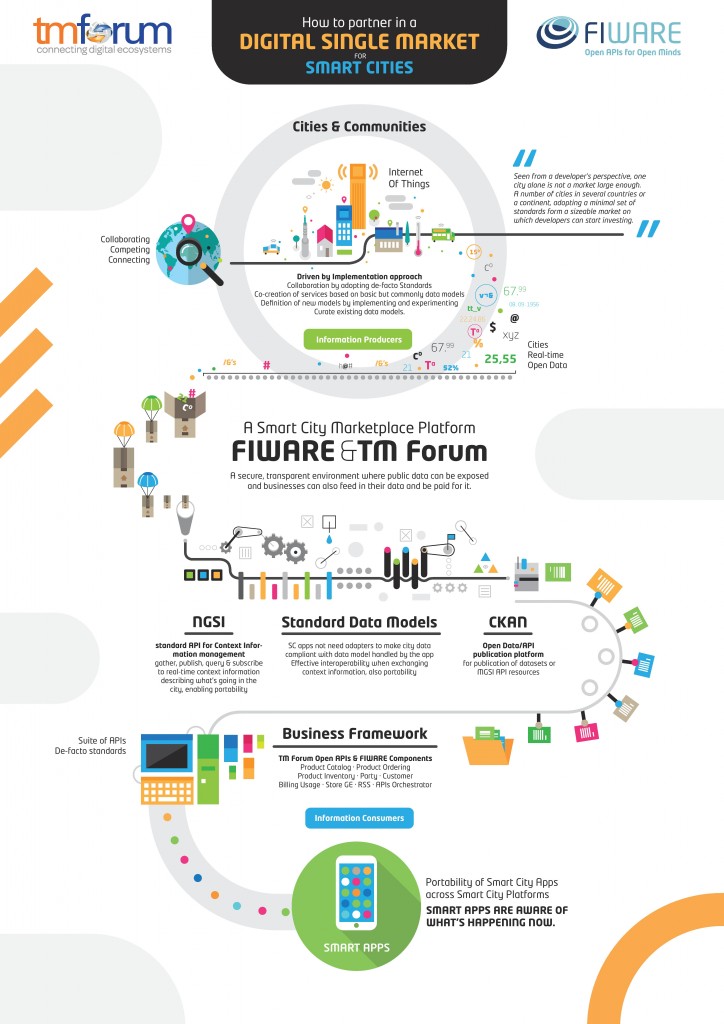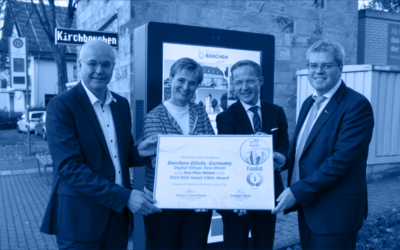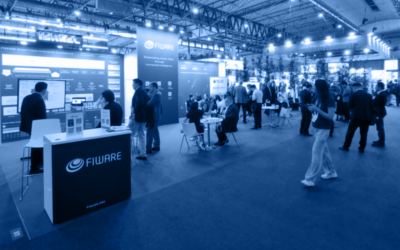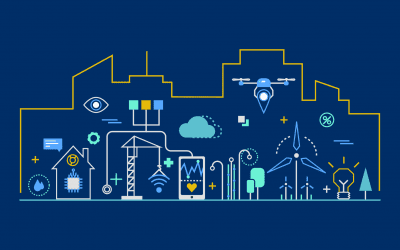How businesses operate is fundamentally changing. These changes were recently summed up by John Hagel on his blog Edge Perspectives. He talks about how customers increasingly want to pay for usage rather than as part of an upfront model. We are seeing this with the uptake of software-as-a-service (SaaS) businesses, streaming services, and with the growth of new disruptors like ride-share apps. For example, many people used to covet having a large CD or DVD collection, whereas now cultural and technological trends have converged to elevate music and video streaming services as a more desirable way to access our entertainment on-demand.
In the business sector, many companies are increasingly seeing what some commentators are calling “shadow IT”: the idea that individual business units are deciding themselves what apps and business software they will buy and use amongst their team rather than going through their IT department to approve their choices, and this is leading to a proliferation in the use of SaaS tools within the one enterprise.
In his blog, Hagel predicts that as we move further towards a pay-as-you-use economy, customers (whether at home or in business) will increasingly demand to pay not for usage, but for the value they receive from a product or service. Data analytics and digital end-to-end delivery of products and services is making this frontier imminent.
As part of this fundamental paradigm shift towards a usage model, Hagel says, businesses are also helping facilitate value creation by connecting their end-customers to partners and other vendors in their ecosystem and even connecting customers to other customers. This is turning many businesses into platforms.
In a digital economy, data becomes a key asset that businesses provide as a way to generate value. And where businesses do not have the exact data that is valuable to their customers, they use their platform base to connect customers to other platform partners who DO have that data.
Consumers and businesses then become more willing to pay for access to data if that data provides them with greater value: if they get premium access to high quality or exclusive content for example, or if the data is available in real-time in a way that can be used immediately. As life speeds up and more demands are placed on our time, we are increasingly willing to pay for access to the data that will give us an advantage or win back our time for us.
Businesses that are currently collecting and thinking through ways to make unique, realtime data available to their partners and customers are best positioned to thrive in this new digital economy. Success happens when business models are more focused on the ability to operate as a platform and enable value to be co-created amongst an ecosystem of customers, suppliers and partners.
And if data is the key asset, then APIs become the key tool that will help businesses create and share the value that data provides. As TM Forum’s Sarah Wray writes in Smart Cities: Enabling the Economy of Data, APIs “function somewhat like combinations of software lock-picks, innovation oil cans and digital glue.“
FIWARE’s partnership with TM Forum is a prime example of how data and APIs will drive this new economy. Our partnership will benefit cities, citizens and local businesses.
Let’s look at a couple of recent examples from FIWARE’s own ecosystem of partners, startups and end users. Based on the HERE maps platform, Telefónica and UPM have created a GPS-based map navigation app for the cities of Porto, Santander, Sevilla and Antwerp using FIWARE’s realtime NGSI API and drawing in data from a range of sources including parking sensors, traffic data, and air pollution. Customers can use the app to navigate to a new city location, avoid congested traffic areas, and even find a vacant parking space when they arrive. Experimentation and replication across a number of pilot cities has helped to identify a minimum data model that is necessary to make their application scalable to different cities and nations. Now they can build a viable business by offering that application in any city as they understand the minimum scalable data model needed to make it work, and they can use FIWARE’s generic enablers and NGSI API to rebuild the app quickly in any area.
FIWARE open de-facto standars are now in a position to enable an ecosystem of data providers to contribute and add value to applications like the GPS-based map navigation application based on the HERE maps platform. For example, business users may want access to realtime data on available vacant parking spaces near a conference event, whereas environmentally-focused travelers may be more interested in data that helps them to reduce their contribution to air pollution or that helps them locate electric power stations for their vehicles. Open datasets published by cities can be included in the app, or if there is a business that is already collecting that data, it could make a partnership arrangement with the city or a data marketplace provider partner of the city to include that data in the app. This way, if customers subscribe to the app, they could pay a premium for access to some of these sorts of specific datasets that help them get the value they want from a GPS app suited to their needs and lifestyle.
This is where FIWARE’s partnership with TM Forum now extends that idea to make new data and platform business models possible. The TM Forum-FIWARE Business Framework combining FIWARE and TM Forum Open APIs let application makers and platform providers including cities partner with third party data providers and split the revenue from usage payments according to the data usage of the end consumer. FIWARE and TM Forum are making the future digital economy that Hagel outlines, a reality now.
You could see how companies and particularly startups could move to a platform business model using a combination of:
-
the NGSI API to get access to context information
-
the data models agreed by domain stakeholders (e.g., cities regarding parking slots and other contextual information available in cities) and
-
the TM Forum Open APIs that provide capabilities like data product discovery and can automate revenue-sharing amongst partners.
FIWARE network startup Agricolus, for example, offers a range of precision agricultural services, including Oliwes, an early warning and pest management system for the olive industry. Their product has been bought by the Italian province of Umbria to assist all farmers in that region to better manage a pest that has decimated annual crops in previous years. Using the APIs from TM Forum and FIWARE, Agricolus can more quickly scale to other areas and build partnerships with other industry groups that may have local data on farming, weather impacts, or environmental quality measurements that could be valuable data additions to their Oliwes product in other regions. Startups like Agricolus can reach new markets faster by buying in new data supplies and using TM Forum revenue-sharing APIs so that data suppliers automatically receive a share of end consumer payments. Other business models — such as providing a reduced service fee or rebate to farmers who share their own data with Agricolus — suddenly become possible and build out the potential of a data economy faster.
The following infographic ilustrates the partnership between TM Forum and FIWARE. This relationship is stimulating the data economy and enhacing the development of cost efficient portable solutions that are interoperable across different platforms.
At the upcoming TM Forum Live in Nice, on May 9-12, many of these ideas will be explored in greater depth. Lets have a look at the event agenda to highlight the sessions involving FIWARE :
DAY 1 – MAY 9, 2016: SMART CITY LIVE – ATHENA AUDITORIUM
-
11.55 AM – FIWARE and OASC – helping to make the Smart City happen. Juanjo Hierro (Coordinator & Chief Architect FIWARE – CTO Industrial IoT and Smart Cities Platform Product Unit Telefónica)
-
04.55 PM – PANEL: APIs and Open Data – empowering businesses to create new smart city services
DAY 3 – MAY 11, 2016: SMART CITY WORKSHOP – ATHENA AUDITORIUM
This workshop will be based on the foundation built by the FIWARE and the TM Forum teams. By combining the experience and knowledge from both actors, this partnership is unleashing innovation in Smart Cities. The workshop aims at discuss and underline the right choices that cities should be making to seize the opportunities that their digital transformation would bring.
- 8:50 AM – Welcome from the Chair – Carl Piva, VP Strategic Programs, TM Forum
- 9:00 AM – Keynote – What is the opportunity cities can seize by joining forces to drive urban innovation and an Economy of Data model? – Michael Mulquin, Director, IS Communications Ltd
- 9:15 AM – Workshop #1 – Unleashing city innovation based on open data – Dr. Sumit D Chowdhury, Founder, Gaia Smart Cities – Creator of Smart City Masters Level Course, Carnegie Mellon University – Best Selling Author of ‘Rules of the Game’,
- 11:15 AM – Workshop #2 – Business model ecosystem design driving an open city data platform – Juanjo Hierro, Coordinator & Chief Architect, FIWARE – CTO Industrial IoT and Smart Cities Platform Product Unit, Telefónica
- 12:45 PM – Networking Lunch & Exhibition Visit
- 2:00 PM – Workshop #3 – When the rubber hits the road: Making it happen – Peter Fatelnig, Deputy Head of Unit for ‘Net Innovation’, European Commission
- 3:15 PM – Roadblocks to be overcome in unleashing smart city innovation – Susan Salkind, Fellow, CodeX – The Stanford Center for Legal Informatics, Stanford Law School
- 3:25 PM – Chairman’s closing remarks – Carl Piva, VP Strategic Programs, TM Forum
You can still get your ticket for TM Forum Live directly.
Also, you can earn it by participating in the Open Hack around smart cities that will take place the weekend before the main event. It might be a great opportunity for startups and developers within the FIWARE ecosystem to boost the deployment of their present projects and apps and also to create new ones!




